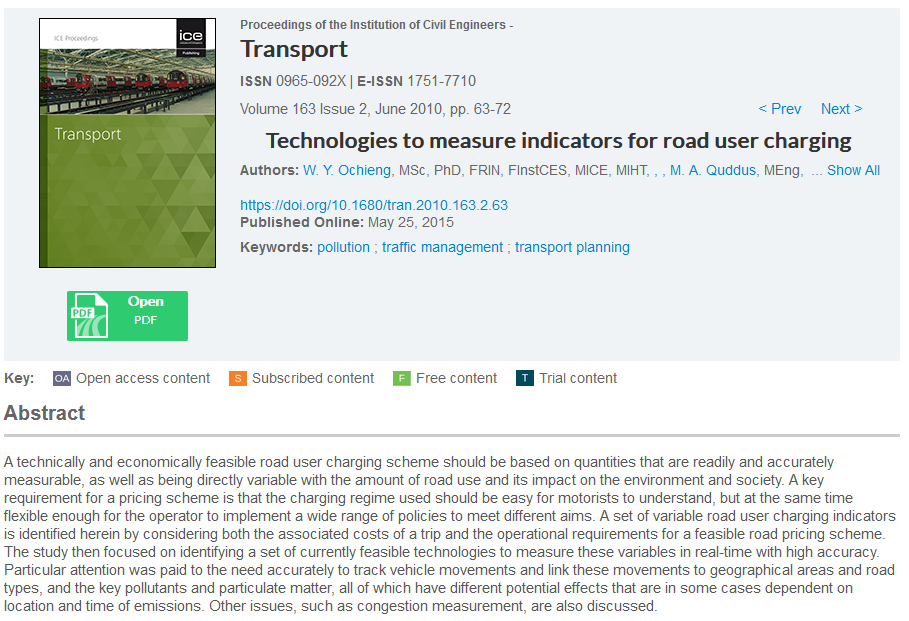Abstract
A technically and economically feasible road user charging scheme should be based on quantities that are readily and accurately measurable, as well as being directly variable with the amount of road use and its impact on the environment and society. A key requirement for a pricing scheme is that the charging regime used should be easy for motorists to understand, but at the same time flexible enough for the operator to implement a wide range of policies to meet different aims. A set of variable road user charging indicators is identified herein by considering both the associated costs of a trip and the operational requirements for a feasible road pricing scheme. The study then focused on identifying a set of currently feasible technologies to measure these variables in real-time with high accuracy. Particular attention was paid to the need accurately to track vehicle movements and link these movements to geographical areas and road types, and the key pollutants and particulate matter, all of which have different potential effects that are in some cases dependent on location and time of emissions. Other issues, such as congestion measurement, are also discussed.
